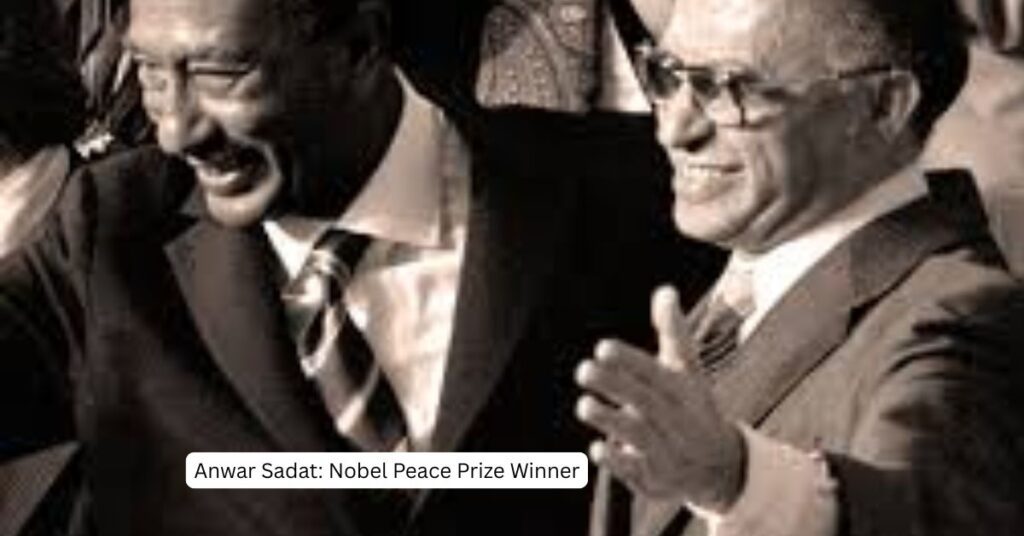Anwar Sadat, the third President of Egypt, remains one of the most influential and controversial figures in Middle Eastern history. His leadership marked a turning point in Egypt’s political and diplomatic direction, particularly with his pursuit of peace with Israel. For his efforts, Sadat was awarded the Nobel Peace Prize in 1978, becoming the first Arab leader to receive this honor. His legacy continues to inspire debates on courage, diplomacy, and the price of peace.
Early Life and Rise to Power
Born on December 25, 1918, in Mit Abu al-Kum, Egypt, Anwar Sadat grew up in a modest family. He joined the military academy and became part of the Free Officers Movement, which overthrew the monarchy in 1952. After years of political and military involvement, Sadat succeeded Gamal Abdel Nasser as president in 1970. Initially underestimated, Sadat quickly proved to be a leader capable of making bold and unexpected decisions.
The October War and Regional Strategy
Sadat’s presidency is strongly associated with the October War of 1973, also known as the Yom Kippur War. Under his leadership, Egyptian forces crossed the Suez Canal and regained territory previously lost to Israel. This military action restored Arab pride and positioned Egypt as a central player in Middle Eastern politics. However, Sadat’s ultimate goal went beyond war—he sought a lasting peace.
Journey Toward Peace
Sadat shocked the world in 1977 when he became the first Arab leader to visit Israel, addressing the Israeli Knesset in Jerusalem. His bold move opened doors for dialogue and negotiation, signaling a new era in Egyptian-Israeli relations. This unprecedented step paved the way for the Camp David Accords, mediated by U.S. President Jimmy Carter in 1978.
The accords laid the foundation for a peace treaty between Egypt and Israel, officially signed in 1979. While the agreement ended decades of hostility, it also came with criticism from other Arab nations, many of whom viewed Sadat’s actions as betrayal.
Nobel Peace Prize Recognition
In recognition of his groundbreaking efforts, Anwar Sadat shared the 1978 Nobel Peace Prize with Israeli Prime Minister Menachem Begin. The award acknowledged their courage in pursuing peace despite decades of enmity and conflict. Sadat’s Nobel Prize highlighted the possibility of reconciliation in one of the world’s most volatile regions.
Legacy and Assassination
While Sadat’s peace initiatives earned him international respect, they also made him a target at home. On October 6, 1981, during a military parade in Cairo, he was assassinated by extremists who opposed his peace treaty with Israel. His death underscored the risks he faced in challenging the status quo and striving for diplomacy.
Despite the controversies, Sadat’s legacy endures. He is remembered as a leader who dared to take risks for peace, changing the trajectory of Egyptian and Middle Eastern history.
Conclusion
Anwar Sadat’s life was defined by bold choices and visionary leadership. From his military career to his historic peace negotiations, he exemplified the power of diplomacy in resolving conflict. His Nobel Peace Prize remains a symbol of his commitment to reconciliation, reminding the world that lasting peace often requires immense courage and sacrifice.





